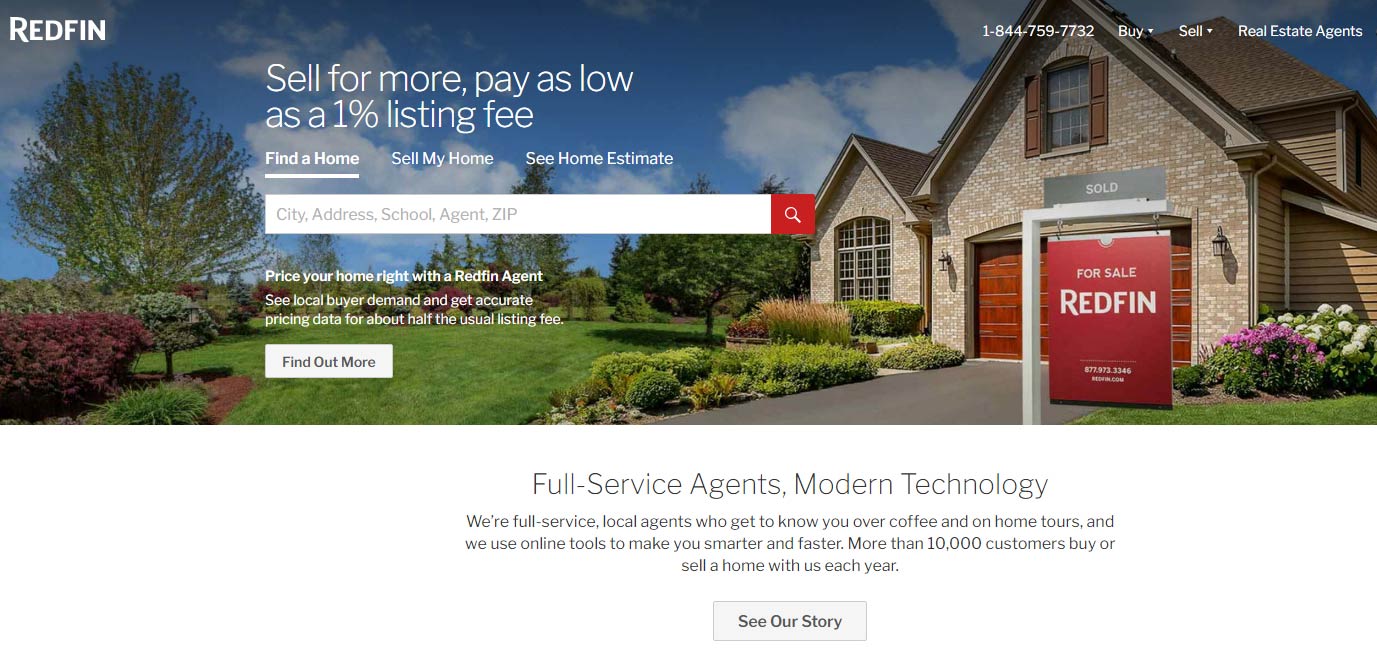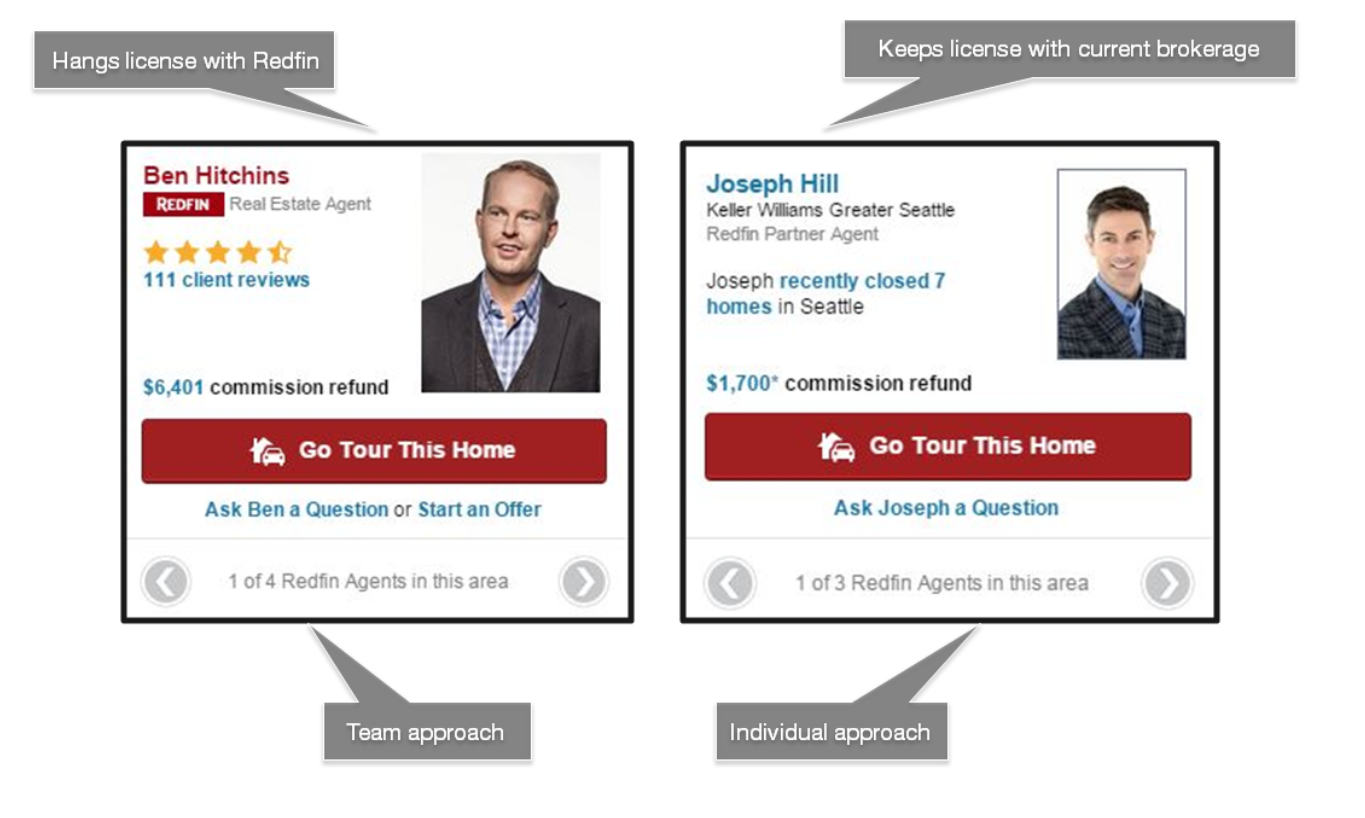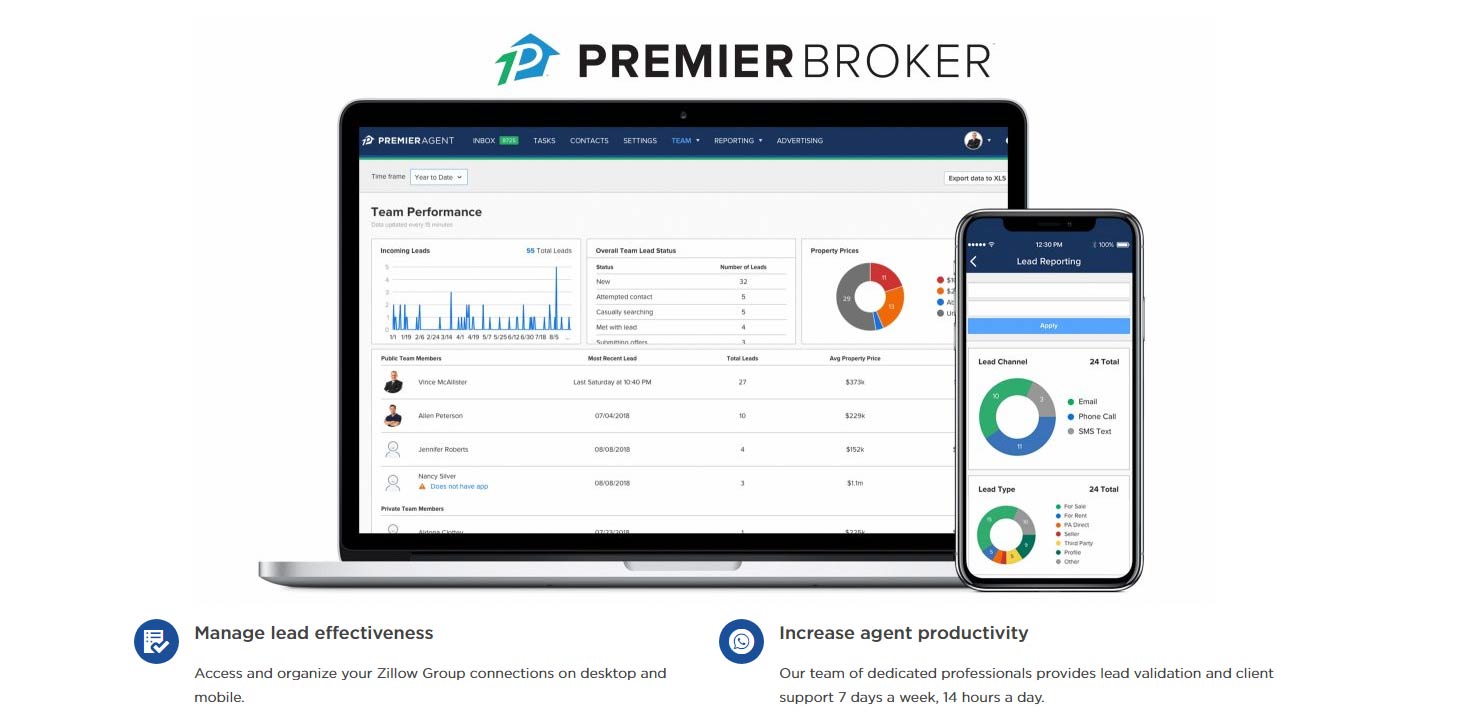Compare Redfin.com (Redfin Partner Program) and Zillow Flex
For Sellers
For Sellers
For Sellers
For Buyers
For Buyers
For Buyers
Answer: Redfin.com (Redfin Partner Program) is a full-service real estate agent and a referral fee network while Zillow Flex is a referral fee network that enables broker-to-broker collusion with use of blanket referral agreements
Buying and Selling with Redfin
WARNING: Unlawful Kickbacks, Broker-to-Broker Collusion, False Marketing, Wire Fraud, Price Fixing.
Redfin.com (Redfin Partner Program)) is a broker-to-broker collusion scheme, where "partner agents" unlawfully agree to pay massive kickbacks to receive your information and engage in market allocation, consumer allocation, false advertising, unlawful kickbacks, wire fraud, and price-fixing practices in violation of, inter alia, 18 U.S.C. § 1346, 18 U.S.C. § 1343, 15 U.S.C. § 1, 15 U.S.C. § 45, 12 U.S.C. § 2607, 12 C.F.R. § 1024.14. As a consumer, you will always significantly overpay for Realtor commissions subject to hidden kickbacks and pay-to-play steering promoted in this scheme.
United States federal antitrust laws prohibit consumer allocation and blanket referral agreements between real estate companies.
Be smart; do not allow your information to be "sold as a lead" to a double-dealing Realtor in exchange for massive commission kickbacks paid from your future home sale, or your future home purchase.
A multi-state broker, a full-service company rebates buyer's part of the commission it receives, where allowed, and provides listing savings to sellers. In some cases, this company acts as an Internet referral fee network where it is unable to provide real estate services.
Redfin Pricing
Redfin offers listing savings to sellers (1% to 1.5% listing fee) and commission refunds to buyers where allowed by State law (21% rebate approximate.). Redfin works with about 3,100 Partner Agents in regions where it has no direct representation in exchange for a 30% referral fees.
Listing Services
- MLS Listing
- Zillow, Trulia, etc. Listing
- Accept and Deliver All Offers and Counteroffers
- Hold Open Houses
- Professional Photography
- Professional Floor Plans
- Yard Signage Installation
- Spare Key Lock-box Installation
- Schedule Inspection Services
- Schedule Private Showings
- Closing Duties
- Home Cleaning (Optional)
- Home Painting (Optional)
- Home Staging (Optional)
- Landscaping (Optional)
Buyer's Agent Services
- Find the Property
- Accept and Deliver All Offers and Counteroffers
- Recommend Other Professionals
- Attend Inspection Services
- Schedule Private Showings
- Negotiate Needed Repairs
- Closing Duties
Redfin.com (Redfin Partner Program) Editor's Review:
Redfin is one of the largest real estate agents in the United States that offers service of a traditional agent with a competitive commission. It is important to separate Redfin services into three distinct categories: a real estate agent, a referral network and a direct cash buyer.
This review is focused on its operations as a real estate agent and a referral network. RedfinNow is further segregated into its own category because it operates as an investor and not a professional agent service model built to represent consumers.
Redfin went public in 2017 with an IPO that has raised $138 million and have thus saved consumers millions in commissions over typical rates offered by traditional real estate brokers. However, Redfin’s operations as a referral network result in an inefficiency known as reverse competition and possible price fixing. Such practice may result in lower quality of service and higher commissions due to added fees.
Agent Listings
Redfin Agents are salaried employees who are also paid bonuses based on client feedback and are not motivated by commissions. Redfin Agent Listing includes posting home on the MLS and MLS Aggregator services, professional photos, 3D tour and all typical services offered by a traditional real estate agent.
Redfin gives sellers access to a well-designed dashboard to track buyers viewing your home and other communication features.
Where Redfin cannot directly serve consumers, the company relies on a referral network of approximately 3,100 independent agents at other brokerages. Approximately 40% of all real estate transactions originated by Redfin are executed by this referral network.
Referral agents pay 30% of their commission back to Redfin when they close a transaction. Once Redfin refers a customer to a Partner Agent, that agent, not Redfin, represents the customer from the initial meeting through closing. In the past, Redfin had actively dictated that Partner Agent commission listing rates are set at 1.5%, or that Partner Agents issue rebates set at 15% to buyers (15% went to Redfin as a kickback.) Redfin has since revised this policy because it violates antitrust law.
In the United States, all independent brokerage fees are always negotiable and each real estate agent establishes its own policy for a fee structure, amount of commissions, and the sharing of any listing commissions.
Price fixing is prohibited by antitrust legislation. To fix, control, recommend, suggest or maintain commission rates or fees for other agents' services is an improper practice. Redfin Corporation has recently stopped such blatant price fixing strategy, where a statement on the company’s website now reads: "Since Partner Agents aren't employed by Redfin, we can't guarantee our 1%–1.5% listing fee or offer a Redfin Refund for customers who work with a Partner Agent." This statement means not only that Redfin "can't guarantee" these savings, but also that consumers shouldn't expect to receive savings from a Partner Agent.
Redfin still heavily engages in market-allocation and consumer brokering practices in their efforts to earn referral fees, instead of actually providing representation services. In 2019 Redfin has made a massive move by allowing with RE/MAX brokerage to participate as Partner Agents, where consumers are "sold as leads" to RE/MAX brokers for 25% cut of their commission.
Consumers a highly likely to overpay for listing commissions and receive little or no refund using Redfin Partner Program, when buying or selling a home, because the added 30% referral fee makes it impossible for Partner Agents to negotiate a fair market rate.
By utilizing Partner Agents, consumers are not just getting nothing, but are being subjected to thousands and sometimes tens of thousands in useless fees paid for the privilege of getting connected to a random agent.
Redfin Partner Program is one of the worst consumer brokering programs in the market because it implies that consumers will get a lower listing rate, or a refund from the Partner Agent shown on the Redfin website, but due to price fixing antitrust law this is not true.
Consumers should absolutely avoid using Redfin Partner Program agents.
Concierge Service
In November 2017 Redfin has launched a program called Concierge Service in select areas that offer home sellers added benefits of coordinating, supervising and paying for services such as deep cleaning, painting, staging, and landscaping in exchange for a 2% listing fee.
Where does Redfin.com (Redfin Partner Program) operate?
Buying and Selling with Zillow Flex
WARNING: Unlawful Kickbacks, Broker-to-Broker Collusion, False Marketing, Wire Fraud, Price Fixing.
Zillow Flex) is a broker-to-broker collusion scheme, where "partner agents" unlawfully agree to pay massive kickbacks to receive your information and engage in market allocation, consumer allocation, false advertising, unlawful kickbacks, wire fraud, and price-fixing practices in violation of, inter alia, 18 U.S.C. § 1346, 18 U.S.C. § 1343, 15 U.S.C. § 1, 15 U.S.C. § 45, 12 U.S.C. § 2607, 12 C.F.R. § 1024.14. As a consumer, you will always significantly overpay for Realtor commissions subject to hidden kickbacks and pay-to-play steering promoted in this scheme.
United States federal antitrust laws prohibit consumer allocation and blanket referral agreements between real estate companies.
Be smart; do not allow your information to be "sold as a lead" to a double-dealing Realtor in exchange for massive commission kickbacks paid from your future home sale, or your future home purchase.
Zillow Flex is a real estate referral fee network that is designed to collect undisclosed referral fees from real estate agents. Within this network, Zillow Group screens and refers consumers to real estate agents with a pre-existing "blanket" referral agreements. Zillow Group refers to this referral service as a Zillow Flex because it allows brokers to participate without paying any upfront costs to Zillow Group.
As a consumer filling out a contact form on the Zillow-owned (Zillow, Trulia, etc.) web site, "you authorize Zillow to make Real Estate Referral and acknowledge Zillow may be paid valuable consideration for facilitating such referral." Zillow Group does not disclose to consumers how much "valuable consideration" it receives from participating brokers. "The established referral fees are specific to each market in order to account for local pricing trends," according to Zillow.
Zillow Flex is a form of pay-to-play consumer brokering product that relies on the use of blanket referral agreements to pay for each referral. Blanket referral agreements between brokers are a per se violation of the Sherman Act. With Zillow Flex consumers are effectively pre-screened by Zillow and “sold as leads” to whoever is willing to pay for this information with a share of their commission.
Zillow Flex Pricing
Zillow Premier Broker does not offer paid services to consumers directly, instead, the portal generates revenue with estimated 25%-40% referral fees from real estate brokers. Zillow Group declines to disclose the exact fee amount.
Listing Services
- This Service Does Not Represent Sellers
Buyer's Agent Services
- This Service Does Not Represent Buyers
Zillow Flex Editor's Review:
This review is focused on the Zillow Flex program only. Two separate reviews are assigned to Zillow Instant Offers and Zillow MLS aggregator programs. Since Zillow was first founded, it has idolized itself as a real estate Internet company. However, with an introduction of Zillow Flex in 2018, this is no longer the case.
Today, Zillow acts as a "paper" real estate broker. This fact allows Zillow to receive referral fees from real estate agents across the United States.
Zillow operates under the following real estate brokerage license in the following States:
Arizona CO580407000
California 01522444
California 01980367
Colorado 100080923
Florida CQ1058944
Georgia 76885
Minnesota 40638657
Nevada B.1002277.CORP
North Carolina C30388
Texas 549646
Washington 21212
Wisconsin 835987-91
Real estate agents are allowed to pay one another referral fees with a narrow RESPA provision that is needed to allow individual agents to refer business to other individual agents outside their service area. Despite being registered as a broker, Zillow does not perform real estate services, it simply sends leads to specific agents within its network and uses a real estate license to collect a back-loaded referral fee in the process.
Referral fee revenue is 32x that of a regular advertisement revenue because it results in an economic process called reverse competition, where consumers suffer from elevated costs and lower service as a result. A referral network is anything but free.
The following are some telling quotes from Zillow itself and a Premier Broker program participants. These words speak for themselves.
- "We receive listing and buyer referrals directly from Zillow's Premier Broker concierge services. These leads have been scrubbed and vetted before they are directly handed off to you." Source: Sonoma County RE/MAX Marketplace, Zillow Flex participant.
- "We will validate all leads first, then send agent-ready buyers to you." Source: Zillow website.
- "What happens if you miss a call? Don't worry. You won't lose your place in the queue and we will call you with the next connection we validate." Source: Zillow website.
Zillow Group does not disclose the exact amount in referral fees it collects from Premier Brokers, aside from stating that it is an "industry standard." Similar referral fee networks typically receive 25%-40% of the agent's total commission. This is a good reference for the amount in commissions consumers can expect to overpay for their real estate services with a Premier Broker. Zillow Flex is a pay-to-play process that harms the industry as a whole and makes buying and selling homes more expensive.
Why does the Zillow allow for such poor UX? There are thousands and sometimes tens of thousands in fees collected from each transaction effectively hidden in consumer’s commission.
Consumers in the United States have been systematically conditioned to a 6% "standard" commission structure, a non-negotiable fact that needs no justification. Unfortunately, this inefficiency alone breeds uncompetitive behavior where real estate agents can easily pay tens of thousands in fees because they are recoverable with a high commission.
Consumers are truly forgotten in this model as an afterthought. When these exigent commissions are amortized over the first five years of homeownership, these fees are the highest single expense line-item - more than the insurance, more than the interest, more than utilities. Clearly, real estate agents only sign-up with Premier Broker because the price of the referral fee can be easily incorporated into their client's agreement with excessive commissions.
RESPA allows for an exception for real estate agents if and only if “all parties are acting in a real estate brokerage capacity" so that individual agents can refer each other when they are out of the local area. This exception has now been turned up-side-down where a referral network does not act in the capacity of a real estate broker. Zillow Group simply uses a license to collect fees without any tangible services done as defined by said license.
Consumers looking to work with a legitimate real estate agent on fair terms should absolutely avoid Zillow Flex and never release their full name, email and a phone number to Zillow Group.
The issue of having all US residential real estate markets heavily subjected to these schemes results in noncompetitive behavior, higher costs to consumers and lower quality of service. Having agents "commonly" pay networks 25%-45% of their commission is the true reason why real estate is broken.
Zillow Group matches consumers with "great, amazing, top-producing, perfect agents" based on who first picks up the phone and who is willing to kick in a chunk of their commission, this is the main basis for this process.
What happens when this flawed revenue model is no longer sustainable due to competitive commissions entering the market? The next stage of real estate innovation will have to account for this reality. In play are now competitive open rates, flat fees and buyer’s refunds from highly qualified real estate agents.
Transparent commission rates will eventually bring and end to a pay-to-play phenomenon in the real estate process where programs like Premier Broker simply cannot exist.
Today, consumers should be careful and only negotiate with agents that have no referral fee agreements signed, this is the only way to negotiate for full service at a market rate.




